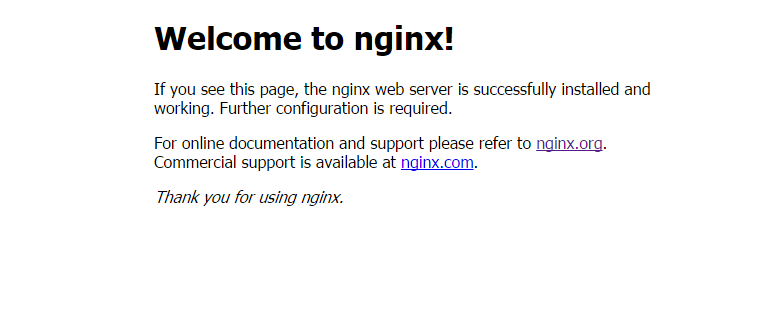一. MySQL安装与配置
1. 配置yum源
# 更新yum源
yum update wget http://dev.mysql.com/get/mysql57-community-release-el7-8.noarch.rpm yum localinstall mysql57-community-release-el7-8.noarch.rpm yum repolist enabled | grep "mysql.*-community.*" 2. 安装MySQL
yum install mysql-community-server # 启动MySQL服务
systemctl start mysqld systemctl status mysqld systemctl enable mysqld
systemctl daemon-reload # 找到root默认密码
grep 'temporary password' /var/log/mysqld.log # 进入mysql控制台, 输入上述查询到的默认密码
mysql -uroot -p # 设置root管理员的密码
set password for 'root'@'localhost'=password('PassWord123@');
5.添加远程登录用户
默认只允许root帐户在本地登录,如果要在其它机器上连接mysql,必须修改root允许远程连接,或者添加一个允许远程连接的帐户
# 添加远程帐户
GRANT ALL PRIVILEGES ON *.* TO 'yourname'@'%' IDENTIFIED BY 'YourPassword@123' WITH GRANT OPTION;
6. 配置默认编码为utf8
修改配置文件 /etc/my.cnf,添加下面两行, utf8编码配置
character_set_server=utf8
init_connect='SET NAMES utf8'
二. PHP环境配置
1. 安装 php 和 php-fpm
# 首先安装epel
yum -y install epel-release # 安装php php-fpm
yum -y install php php-fpm # 查看php版本
php -v 2. 安装php-mysql
yum install php-mysql 3. 设置php-fpm开机自动启动
systemctl enable php-fpm 4. 启动php-fpm
systemctl start php-fpm 三. Nginx安装与配置
# 下载安装包
wget http://nginx.org/download/nginx-1.10.0.tar.gz # 解压Nginx的tar包,并进入解压好的目录
tar -zxvf nginx-1.10.0.tar.gz
cd nginx-1.10.0/ # 安装zlib和pcre库
yum -y install zlib zlib-devel
yum -y install pcre pcre-devel # 配置、编译并安装
./configure--with-http_ssl_module\
make
make install # 启动nginx
/usr/local/nginx/sbin/nginx 访问服务器后如下图显示说明Nginx运正常。

# nginx 配置访问项目目录并支持 PHP 的 pathinfo 模式配置
server { listen 80; server_name xxx.xxxx.com; # 你的域名 location / { root /var/www/xxx项目目录/; index index.php; } #location ~ ^(.+\.php)(.*)$ { # root /var/www/xxx项目目录/; # fastcgi_pass 127.0.0.1:9000; # fastcgi_index index.php; # fastcgi_split_path_info ^(.+\.php)(.*)$; # fastcgi_param PATH_INFO $fastcgi_path_info; # if (!-e $document_root$fastcgi_script_name) { # return 404; # } # fastcgi_param SCRIPT_FILENAME$document_root$fastcgi_script_name; # include fastcgi_params;
}
location ~ \.php$ { try_files $uri =404; fastcgi_pass 127.0.0.1:9000; fastcgi_index index.php; include fastcgi_params; fastcgi_param SCRIPT_FILENAME $document_root$fastcgi_script_name; fastcgi_param PATH_INFO $fastcgi_path_info; }}
常用指令
mysql
systemctl start mysqld # 启动
systemctl stop mysqld # 停止
systemctl restart mysqld # 重启
php-fpm
systemctl start php-fpm # 启动
systemctl stop php-fpm # 停止
systemctl restart php-fpm # 重启
后台启动:
查看php-fpm配置文件,因为php-fpm配置文件有一个选项是:
daemonize = yes
nginx
sudo fuser -k 80/tcp # 杀死80端口
/usr/local/nginx/sbin/nginx # 开启
/usr/local/nginx/sbin/nginx -s stop # 停止
/usr/local/nginx/sbin/nginx -s reopen # 重启
/usr/local/nginx/sbin/nginx -s reload # 重新载入配置文件
nginx配置:
php.conf:
server {
listen 80;
server_name ningli.win;
# note that these lines are originally from the "location /" block
root /web/php;
index index.php index.html index.htm;
location / {
try_files $uri $uri/ =404;
}
location ~ \.php$ {
try_files $uri =404;
fastcgi_pass 127.0.0.1:9000;
fastcgi_index index.php;
fastcgi_param SCRIPT_FILENAME /web/php$fastcgi_script_name;
include fastcgi_params;
}
}
}
https://www.jianshu.com/p/7c0e6c2663fd